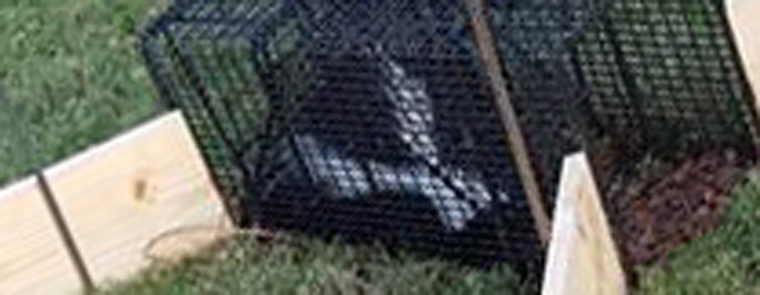-
info@aaanimalcontrol.com
Call us for help in your town
Humane Wildlife Education
Are Skunks That Are Active During The Daytime Usually Rabid?
Need skunk removal in your hometown? We service over 500 USA locations! Click here to hire us in your town and check prices - updated for year 2020.
Around a quarter of all animals that are tested for rabies in the United States are skunks, but this certainly does not mean that all skunks, or even a majority of skunks carry the disease. Much like any other mammal, rabies is ultimately fatal to a skunk that contracts the disease, and for skunks it is believed that less than ten per cent of all animals are actually rabid. One of the symptoms that can indicate rabies is erratic behavior, and some people to believe that skunks active during the day may be rabid, but the truth is that there are several other reasons why the skunk may be active.

The Natural Habits Of Skunks
The majority of skunks are crepuscular, which means that they are usually awake in the evening around dusk for a few hours, and are also active in the morning for a few hours at around dawn. There is also a natural reduction in how often they are active during the winter, and although they do not go into a full hibernation like some species, they do slow their metabolism and become active for a very short time every day. Being active outside of these hours can be a sign of rabies, but it certainly shouldn't be taken as a guarantee that the skunk has rabies.
Reasons Why A Skunk Can Be Active During The Day
One of the biggest reasons that skunks can be active during the day is that the animal is pregnant or has already given birth, as the process of rearing her young can sometimes cause a female skunk to become active at unusual times of day. There are also some situations where skunks will have learned to be active at a certain time will have improved scavenging, particularly in urban areas when the scent of garbage on collection day may encourage the animal to be active on that morning.
Identifying A Skunk That Is Rabid
A major sign to look out for if you are concerned that a skunk may be rabid is foaming at the mouth, and this is often the easiest indication to spot that the disease is active in the animal. Another sign is that the skunk is showing a distinct aversion to water, swerving away from puddles and generally trying to avoid water. However, the step you should really take is to notify your local animal services department so they can catch the animal and carry out the relevant tests.
For more information, you may want to click on one of these guides that I wrote:
How much does skunk removal cost? - get the lowdown on prices.
How to get rid of skunks - my main skunk removal info guide.
Sick skunk symptoms - Any animal can get sick just like any human can get sick. They symptoms are not always the same, and often animals cover their signs of discomfort until they are seriously ill. If you see a sick skunk, you will likely see the animal wobbling or falling over. If it seems too lethargic or unafraid, there might be something wrong with it. Rabies is one of the most common diseases in skunks, and while not all of them carry it, those that do can pass it on to humans. With wildlife, a good rule of thumb is to always leave the animal alone. If it’s healthy, it doesn’t want to be harassed; if the animal is sick, it might attack you. Always be wary. But, that being said, seeing a skunk out in daylight is not a cause for panic. These animals are primarily nocturnal, but they are often active during the day. People have been bombarded with myths about wildlife since childhood. Generally, if you leave them alone, they will leave you alone.

So bottom line, no, a skunk that is active outside during daylight hours does not necessarily have rabies. In fact, it very likely doesn't. The way to tell if it has rabies is if it is acting very sick! Staggering, wandering aimlessly, shaking, foaming. If it looks like it
is alert and moving with purpose, it's healthy, and engaging in normal daytime behavior.


















